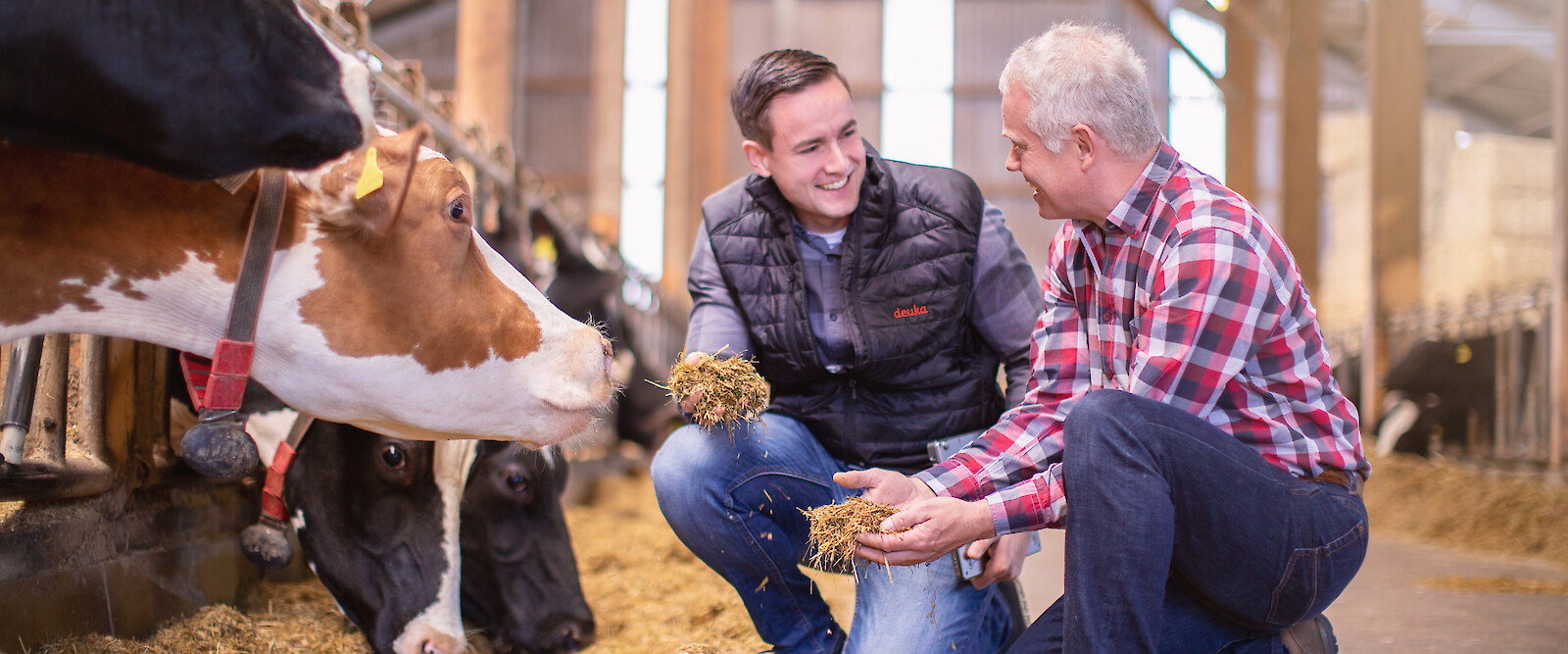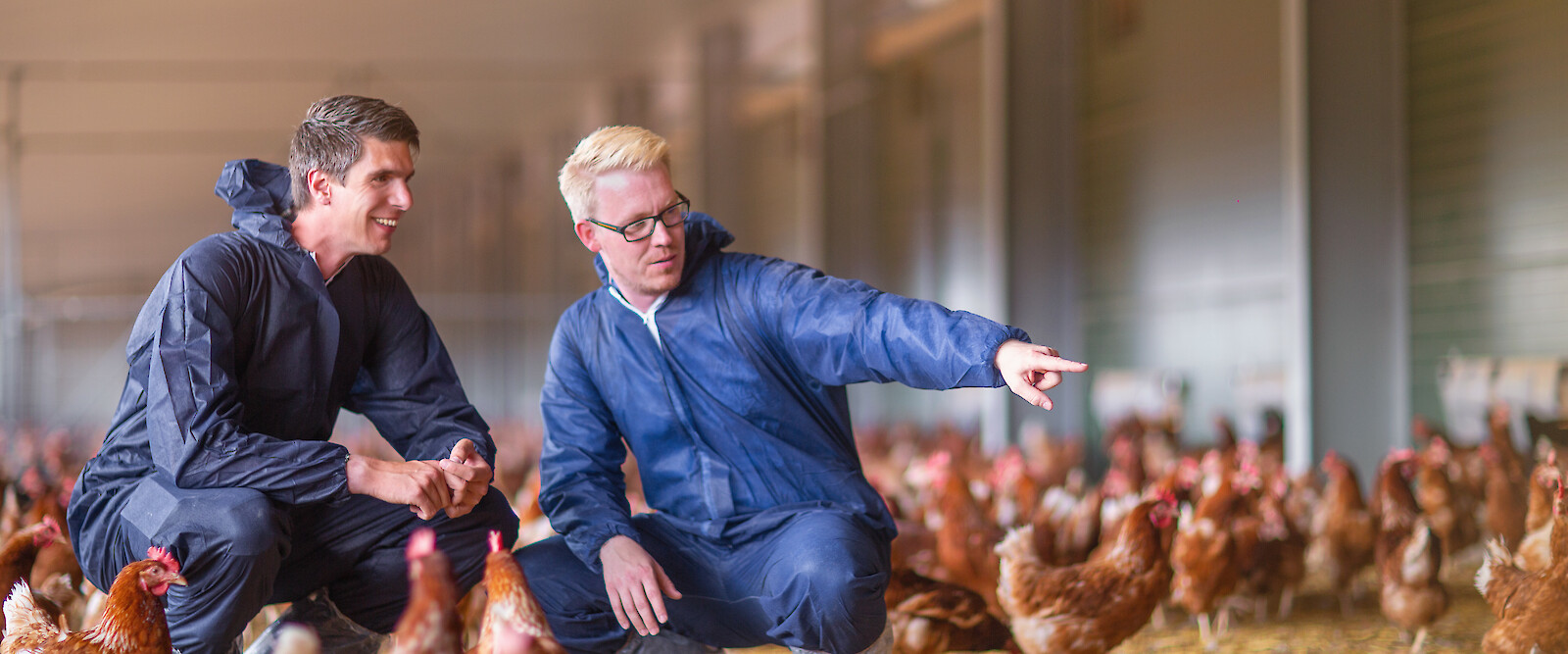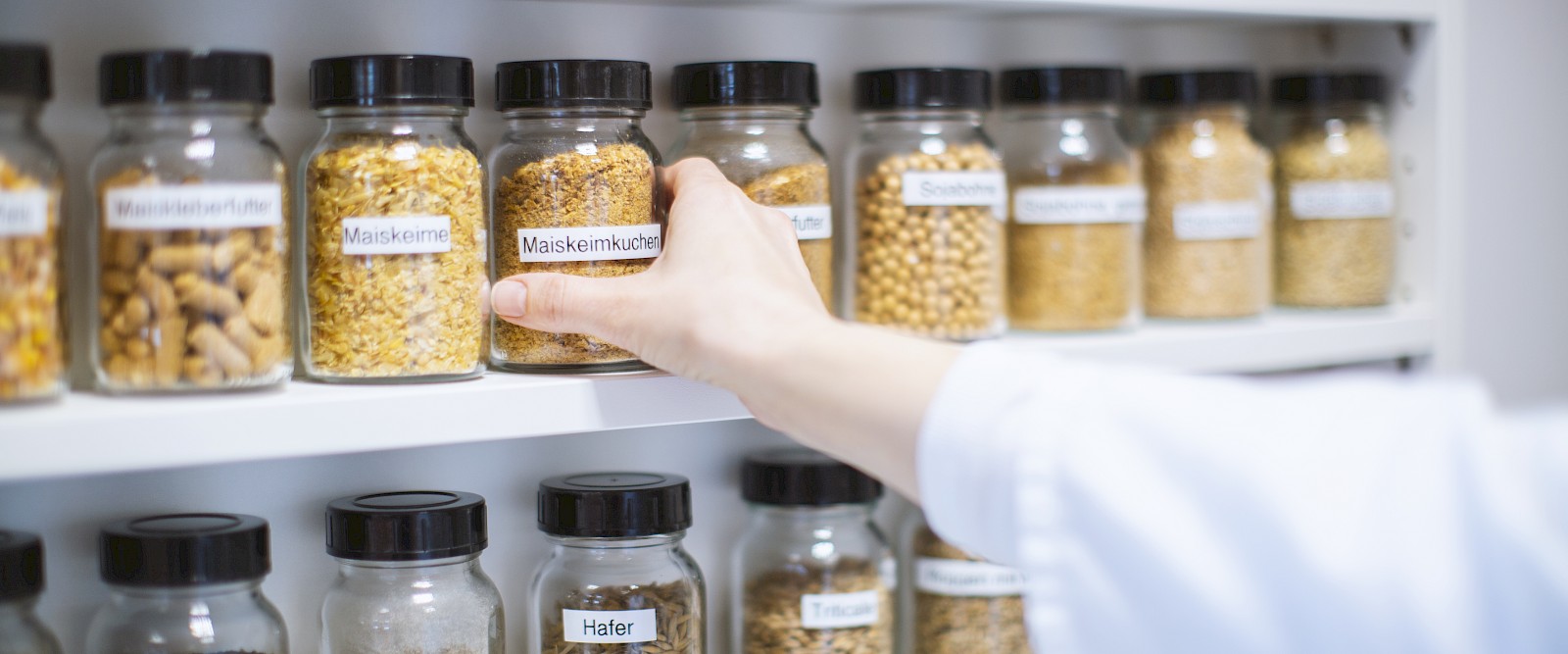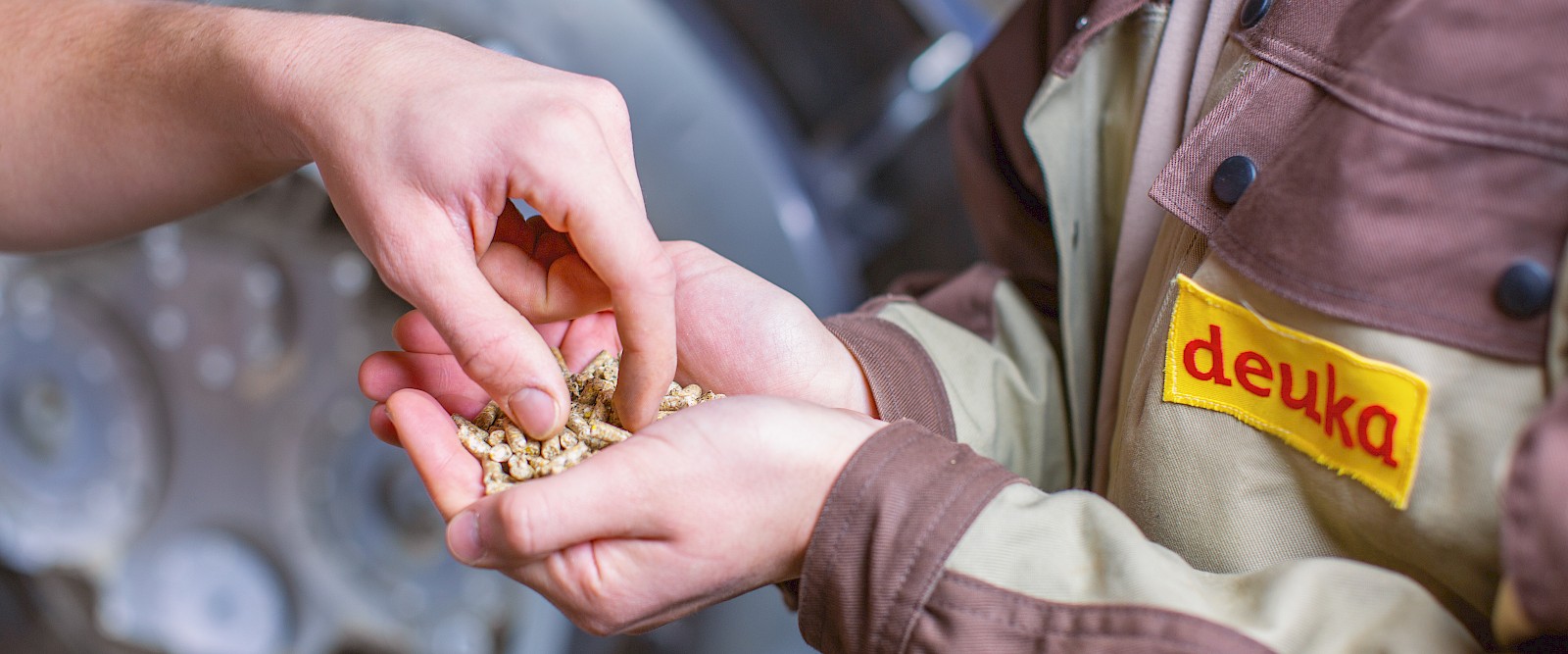Raw material and nutrient lexicon
Phytase
Phytase is an enzyme that is widespread in nature. It is found in numerous plant seeds such as cereals and is produced by numerous microorganisms such as fungi, bacteria, yeasts and also the microbes living in the rumen of ruminants. Phytase hydrolytically breaks down the phytate phosphorus contained in plant seeds. This accounts for about two-thirds of the total phosphorus in seeds. Animals with a monogastric stomach (monogastric animals) such as pigs have practically no phytase activity. This is the reason for the low utilisation of plant phosphorus of 0-40 %.
The phytase added to the feed is obtained by fermentation using certain fungal strains(Aspergillus niger).
The targeted use of microbially obtained phytase in feed for pigs and poultry, among others, significantly improves the utilisation of phytin phosphorus to meet the animal's phosphorus requirements. Therefore, the addition of mineral phosphorus to the feed can be reduced, the phosphorus content of the feed is reduced overall, thus also reducing the excretion of non-utilisable or non-utilised phosphorus with the animal excrements and ultimately making a significant contribution to relieving the environment.






